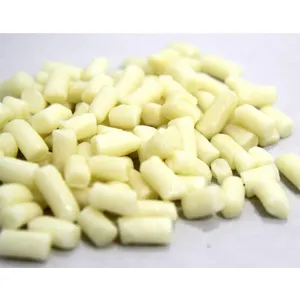Popular in your industry






































































Related Searches:
























































































































































Top categories
About anhydrous calcium chloride
An Introduction to Anhydrous Calcium Chloride
Anhydrous calcium chloride, a versatile compound with the formula CaCl2 anhydrous, is a pivotal industrial chemical used in various applications. This desiccant is well-known for its hygroscopic properties, meaning it can anhydrous calcium chloride absorb water efficiently, making it an essential product in moisture control scenarios.
Types and Forms
The compound is available in several forms, including anhydrous calcium chloride pellets and calcium chloride anhydrous powder. These forms cater to different industrial needs, ranging from dust control to refrigeration. The molecular weight of anhydrous calcium chloride, a significant specification for buyers, is approximately 110.98 g/mol, denoted as CaCl2 anhydrous molecular weight.
Applications of Anhydrous Calcium Chloride
The uses of anhydrous calcium chloride are diverse. It serves as a de-icing agent to melt snow and ice on roads, in water treatment plants to maintain the hardness of water, and in the construction industry where it acts as a concrete additive to accelerate the setting time. Moreover, its ability to remove moisture makes anhydrous calcium chloride desiccant uses particularly valuable in preserving packaged goods by preventing spoilage due to moisture.
Features and Advantages
One of the remarkable features of anhydrous calcium chloride is its exothermic reaction when dissolved in water, which is utilized in heating pads and hand warmers. Additionally, its use in the food industry as a firming agent showcases its versatility. The compound's efficacy in preventing anhydrous calcium chloride rusting of metal surfaces is also a notable advantage in industrial maintenance.
Material and Safety Information
Safety data sheets, such as anhydrous calcium chloride cleapss and anhydrous calcium chloride pubchem, provide comprehensive information on handling, storage, and emergency measures. It is crucial for users to understand the interaction of anhydrous calcium chloride with water to ensure safe usage, as the compound can generate significant heat upon contact with moisture.
Environmental and Handling Considerations
While handling anhydrous calcium, appropriate safety measures must be taken to avoid contact with skin and eyes, as it is highly hygroscopic and can cause irritation. Environmental considerations are also taken into account, ensuring that the use of this compound does not adversely affect the surrounding ecosystem.



























